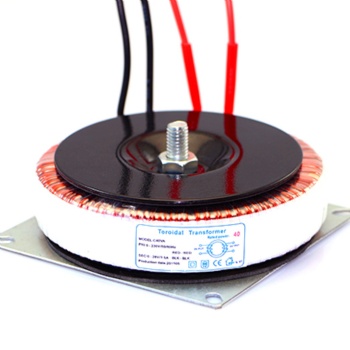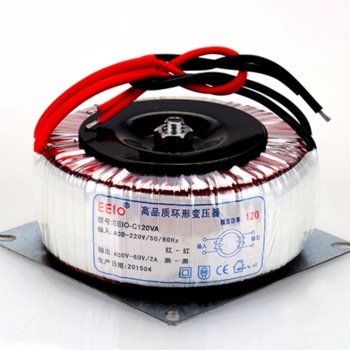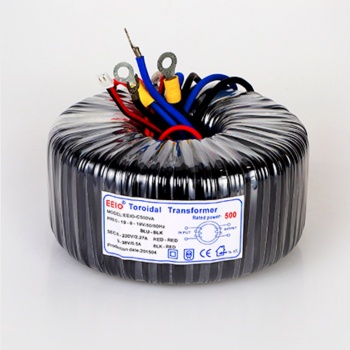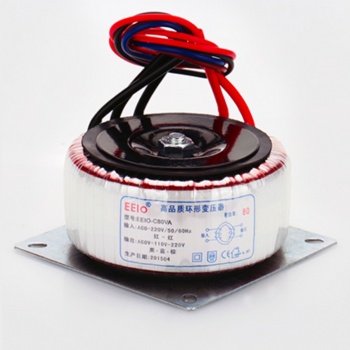News
Why is it not recommended to use aluminum wire wound toroidal transformers?
The windings of toroidal transformers are usually wound with copper wire because copper has a lower resistivity than aluminum and conducts electricity better. Although aluminum wire is lighter and less expensive, its higher resistivity than copper means that more electrical energy in the transformer windings will be converted into heat energy if the same size aluminum wire is used instead of copper wire, resulting in lower efficiency.
Here are some reasons why aluminum wire is not usually recommended for toroidal transformers:
1. Electrical conductivity: Copper has an electrical conductivity that is about 60% higher than aluminum, which means that copper wire has lower power losses.
2. Mechanical strength: Copper wire is stronger and more fatigue-resistant than aluminum wire, and is less likely to break during winding and long-term use.
3. Lifespan: Copper wire has a longer service life because it is more resistant to environmental and thermal cycling.
4. Thermal expansion: Aluminum has a greater coefficient of thermal expansion than copper. Aluminum wire changes volume more when the current load changes, which can cause the connection to loosen or break.
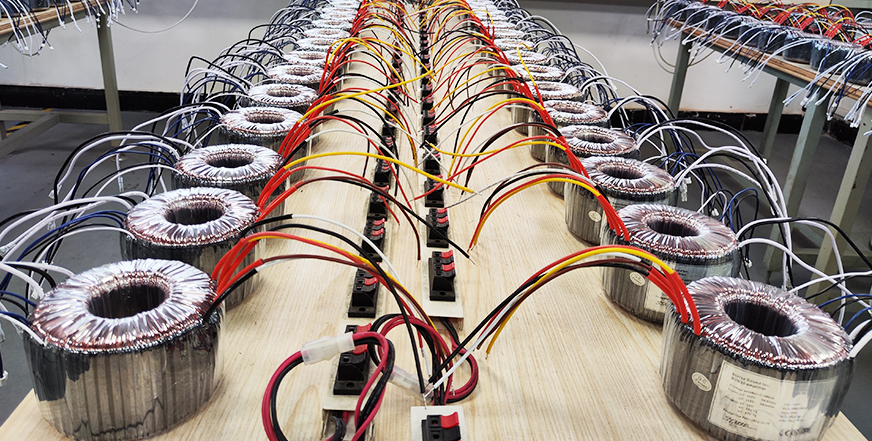
5. Contact resistance: Aluminum easily forms an oxide film in the air, which increases the contact resistance, which may cause additional sparks or hot spots during connection.
6. Winding difficulty: Due to the low mechanical strength of aluminum, it may be more easily damaged during the winding process, which is particularly important when passing through a compact toroidal core.
7. Maintenance and reliability: Copper wire connections are easier to maintain and have high connection reliability, while aluminum requires special attention and welding technology (such as using solder suitable for aluminum, or using mechanical connections such as fastening screws).
Categories
Contact Us
- 0086 13923119482
- info@eeiotransformer.com
- 0086 13923119482
